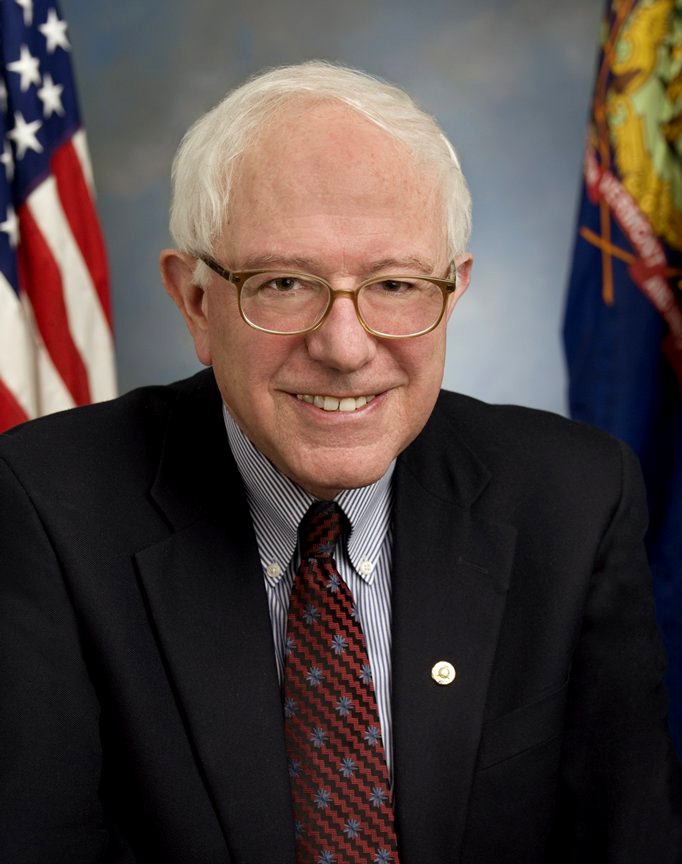In major address, potential 2020 presidential candidate Bernie Sanders calls out “disastrous” war on terror
by Jake Johnson, staff writer for Common Dreams
After months of aggressively rallying support for domestic objectives like Medicare for All, union rights, and a $15 minimum wage, Sen. Bernie Sanders (I-Vt.) in a speech on Thursday turned his attention to American foreign policy and the so-called war on terror, which he says has been a “disaster” for the world and for the United States.
The address covered a wide range of topics—from the history of U.S. interventionism to the threats posed by climate change and nuclear proliferation—and called for an “expansive” view of foreign policy that encompasses such issues as global inequality, the power of multinational corporations, and the rise of racist movements in the United States and abroad.
“Foreign policy is about whether we continue to champion the values of freedom, democracy, and justice, values which have been a beacon of hope for people throughout the world, or whether we support undemocratic, repressive regimes, which torture, jail, and deny basic rights to their citizens,” Sanders said. (Watch the video)
Earlier:
According to excerpts obtained by The Daily Beast ahead of the speech, Sanders will argue that American interventionism abroad feeds the very problem it claims to be eradicating.
“Orienting U.S. national security strategy around terrorism essentially allowed a few thousand violent extremists to dictate policy for the most powerful nation on earth,” Sanders will say. “It responds to terrorists by giving them exactly what they want.”
The speech is set to take place at Westminster College in Fulton, Missouri, the site of Winston Churchill’s famous “Iron Curtain” speech, and many progressives are suggesting that the address could be a defining moment for Sanders, who is widely viewed as a leading 2020 presidential candidate.
Some are drawing early comparisons between Sanders’s planned speech and the address delivered by U.K. Labour Leader Jeremy Corbyn, who similarly denounced the war on terror as a failure and drew a link between British foreign policy and the spread of terrorism.
To offer an example of what diplomacy can achieve, Sanders will also look to draw attention to the Iran nuclear deal, which is currently under threat from the Trump administration. The agreement, Sanders will argue, offers a counterpoint to the decades of American interventionist policy that has led to endless conflict overseas.
“There are two things he’s going to compare and contrast: the Iraq War, which most now agree was a disaster, and the Iran agreement, which is an example of how American leadership should work, where we used diplomacy and mobilized international consensus to address a shared challenge,” a Sanders aide told the Huffington Post.
The aide added that Sanders’ speech Thursday will attempt to make clear that American foreign policy has massive consequences at home.
“[S]ending troops abroad and the money we wasted in Iraq that could have gone to infrastructure or to healthcare or even to effective foreign aid,” the aide said.
Sanders’ remarks will come at a time of soaring global tensions and on the heels of President Donald Trump’s first address to the United Nations, in which he threatened to “totally destroy” North Korea—a remark denounced by critics as “genocidal.”
“President Trump’s bombastic rhetoric is not appropriate when we are dealing with the possibility of a nuclear war that could kill millions of people,” Sanders said in August after Trump’s “fire and fury” comments, concluding that a “a comprehensive diplomatic strategy” must be pursued.
As the New Republic’s Graham Vyse noted in a piece earlier this week, Sanders’ speech will aim to fill a crucial void—the lack of a clearly articulated progressive foreign policy vision.
“Given the constant domestic crisis of the Trump administration—the latest insanity being another last-ditch effort to repeal Obamacare—it’s understandable that the Democrats haven’t focused as much on his foreign policy,” Vyse noted. “Yet Trump’s U.N. speech heightens the need for the opposition to communicate its own international agenda, clearly articulating how Democrats would engage with the world if they retook power.”










